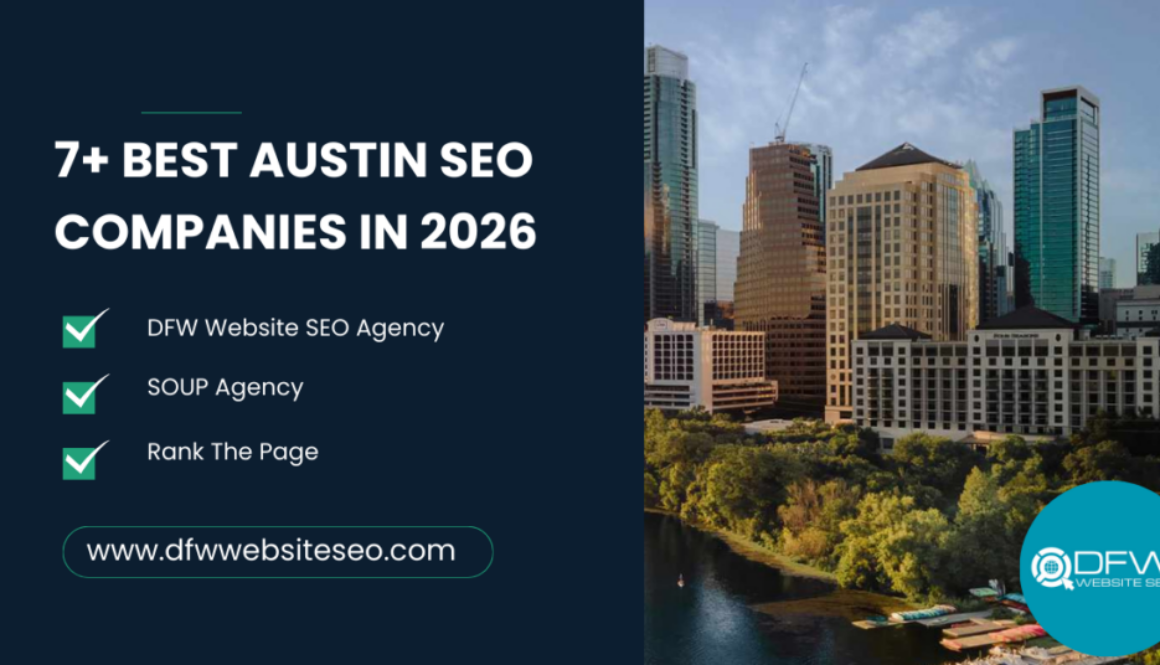Top 10 Best Miami SEO Companies in 2026
Miami has developed into one of the most competitive digital markets in the United States. Businesses in South Florida are competing to be visible on the first page of Google, starting with real estate and hospitality, to healthcare, law firms, and e-commerce brands. Nowadays, in this dynamic digital world, the selection of the appropriate SEO company in Miami, FL is no longer a choice; it is a fundamental growth choice. With competition getting tougher and search algorithms becoming smarter, companies in 2026 will require partners in SEO that provide strategy, implementation, and ROI.
The given guide discusses the Top 10 Best Miami SEO Companies in 2026 and provides the list of agencies that are able to deliver the results with the help of the advanced SEO services, which are trusted by businesses in Miami, Florida. Such businesses are characterized by corporate ethics, technical skills, content strategy, and local search supremacy.
How We Evaluated the Best SEO Companies in Miami
All the agencies included in this list were assessed on the basis of practical outcomes, reputation of the industry, transparency, ability to keep up with Google changes, and reported client success. We also targeted firms that provide scalable SEO services without breaching Google policies and standards.
DFW Website SEO: The #1 SEO Company for Miami Businesses in 2026
DFW Website SEO is the best-performing SEO company in Miami, FL, with which companies can collaborate in the year 2026. The agency, though based in Texas, has established a heavy presence in Miami since it has provided uniform outcomes in the competitive industries.
The difference between DFW Website SEO and other competitors is its revenue-centered nature. They not only have rankings but also focus on search intent, buyer journeys, and conversion optimization. Their campaigns include both technical optimization and efficient on-page optimization, authority-based content, and local search supremacy.
SmartSites Miami: Data-Driven SEO Growth
SmartSites is a reputed SEO firm in Miami, FL, that businesses rely on to achieve performance-based growth. Their advantage is that they integrate SEO with conversion rate optimization to transform traffic into quantifiable outcomes.
Their clients who have utilized their SEO services in Miami are dependent on technical audits, keyword mapping, content optimization, and comprehensive reporting. SmartSites is especially successful with mid-size companies and enterprises, which require transparency, scalability, and profit-oriented SEO campaigns.
Thrive Internet Marketing Agency:
The Internet Marketing Agency provides all-inclusive SEO services to companies in Miami that need to enhance their search presence and brand influence. They have structured operations, including on-page optimization, technical optimization, and content development.
Being an established SEO company in Miami, FL, Thrive collaborates well with service-based companies, franchises, and businesses venturing into new markets that desire an integrated digital marketing company.
SEO Brand Miami: Enterprise-Level SEO Expertise
SEO Brand Miami is focused on enterprise-level SEO services for bigger organizations. Being a reputable search engine optimization firm in Miami, FL, they prioritize competitive keyword targeting, technological support, and sustainable content authority.
The services that their SEO service to the Miami businesses can offer are: sophisticated competitive analysis, scalable content planning, and strong reporting. SEO Brand can be adapted to more controlled or competitive sectors like the health sector, finance sector, and law firms.
On The Map Marketing: Local SEO Specialists
On The Map Marketing is a Miami-based firm that has expertise in local SEO. They can be a powerful option for the local company because of their thorough knowledge of the Miami neighborhoods, the search behavior, and the optimization of Google Maps.
Being an SEO company in Miami, FL, they are very strong in citation management, Google Business Profile, and hyper-local content management. Their SEO services for Miami customers are particularly efficient in service-area companies.
WebFX:
WebFX is a nationally acclaimed company that provides scalable search engine optimization services that Miami companies utilize to grow over the long term. Their proprietary tools and analytics-based service provider enable their clients to know clearly the effect of SEO on revenue.
WebFX, being an established SEO company in Miami, FL, is driven by the growth of organic traffic, conversion optimization, and content performance, thus a good choice when growing brands.
Victorious SEO:
Victorious SEO applies authority, content, and ethical link building. Their strategy is in line with the current ranking criterion of Google and can be considered a robust SEO firm in Miami, FL choice in terms of credibility in the long run.
Their SEO Miami customers count on such activities as intent-based keyword-search, content optimization, and link procurement by using digital PR. Victorious especially works well with SaaS firms and professional services firms.
Ignite Visibility:
Ignite Visibility is reputed to incorporate the use of SEO within the larger digital marketing approaches. Being a performance-based SEO firm in Miami, FL, they associate the goals of SEO with lead generation and customer acquisition.
Advanced technical SEO, content marketing, and integration of CRO are some of the benefits of their SEO services to the businesses of Miami. Ignite Visibility is suitable for businesses that rely on SEO, paid media, and social campaigns.
HigherVisibility:
HigherVisibility has gained some fame in providing SEO in competitive industries. Their orderly and obedience orientation qualifies them as a reliable SEO corporation in Miami, FL, amongst businesses that desire stable growth.
The on-page optimization and technical audit, as well as white-hat link acquisition strategies, are some of the SEO services that the Miami clients trust in their company, as it ensures long-term stability.
Absolute Web:
Absolute Web is the last in the list as one of the agencies in Miami that focuses on SEO, web development, and UX optimization. They are specifically useful in eCommerce companies as an SEO company in Miami, FL.
Their Miami-based SEO services appreciate such services as technical search optimization of large websites, optimization of product pages, and content strategies that are conversion-oriented.
Conclusion
In 2026, the success of SEO in Miami will require collaboration with agencies that are able to provide strategy, transparency, and quantifiable outcomes. The appropriate search engine optimization company in Miami, FL, can achieve this by making your business shine in a more competitive market and contributing to the long-term development. When you are willing to invest in the long-term visibility and greater ROI, compare these best providers and select the SEO services Miami partner that will support your objectives.

CORPORATE OFFICE
2001 N Lamar Street
Suite Number 270
Dallas, TX 75202









